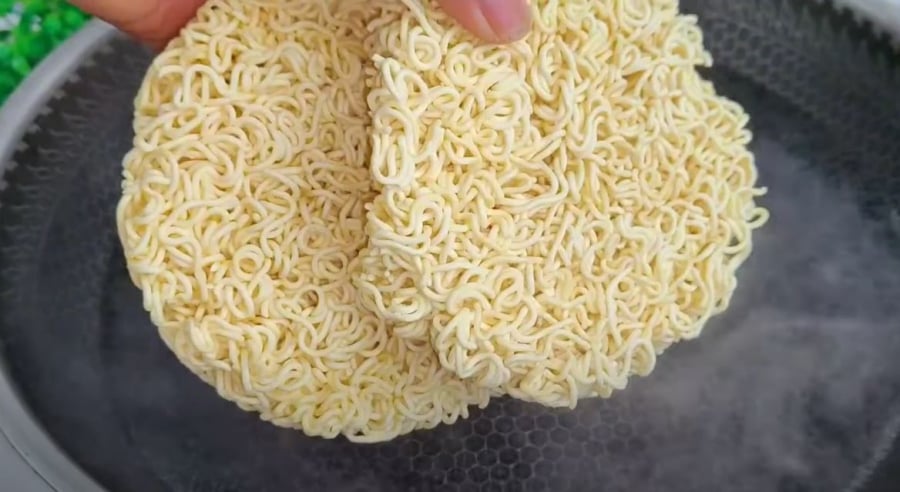Instant noodles are a convenient product that many people love. In Vietnam, many people have the habit of calling instant noodles “mì tôm”, even though it does not contain shrimp. In a typical instant noodle pack, you will usually find only the noodle block, seasoning packet, flavor packet, and some types may have additional packets of meat or dried vegetables, but never shrimp. So why do many people call instant noodles “mì tôm”?
**Why do people often call instant noodles “mì tôm” even though there are no shrimp in it?**
The name “mì tôm” has been around since the 1970s. According to an explanation on a VTV1 program, before 1975, there was a type of noodle in the market called “Mì tôm Colusa” from the Colusa Food Processing Enterprise.
In 1985, the Miliket Food Enterprise was established. Then, in 2004, the Colusa Food Processing Enterprise and Miliket Food Enterprise merged and became the Colusa – Miliket Food Processing Enterprise. Subsequently, the Miliket instant noodle product was born.

Instant noodles are often called “mì tôm” even though there are no shrimp in it.
At that time, instant noodle products were not as diverse as they are today, and consumers did not have many choices. The instant noodle brand with the two shrimp logo was one of the popular products and was chosen by many. Based on the image of the two shrimp on the packaging, people became accustomed to calling instant noodles “mì tôm”. This naming has been maintained to the present.
Instant noodles (or “mì tôm”) have a pleasant flavor and can be prepared in various ways, such as pouring hot water over the noodles, cooking the noodles, stir-frying them, or even eating them raw, as some people prefer. In addition, instant noodles are convenient and do not require elaborate preparation, making them affordable and suitable for many people’s budgets. Therefore, instant noodle products have high consumption rates.
However, it is important to note that eating instant noodles frequently is not good for health, especially as a replacement for main meals. Instant noodles provide little nutrition and do not meet the diverse nutritional needs of the body.
**Some things to keep in mind when eating instant noodles:**
*- Do not eat instant noodles regularly*
Regular consumption of instant noodles can be harmful to health. A study in South Korea involving 6,440 adults showed that those who frequently ate instant noodles had lower intakes of protein, phosphorus, calcium, potassium, iron, and vitamins compared to the general population.
People who eat instant noodles tend to consume less vegetables, meat, fish, fruits, and nuts. They are more likely to have abdominal obesity, metabolic syndrome, high blood pressure, and high blood sugar.
In addition, instant noodles have a high salt content, increasing the risk of cardiovascular disease, hypertension, and stroke.
*- Do not eat instant noodles raw*
Some people enjoy eating instant noodles raw, and some even mix the raw noodles with seasonings to enhance the flavor. However, consuming raw instant noodles increases the burden on the digestive system and can cause indigestion. The high salt and preservative content in instant noodles are also not beneficial to health when consumed directly. Cooking the noodles can reduce these harmful substances.
*- Do not eat instant noodles before sleeping*
Eating instant noodles before sleeping can cause discomfort in the digestive system, leading to difficulty falling asleep and restless sleep.
Instant noodles may contain iron, manganese, and vitamin B, but they lack many other important nutrients. Additionally, the high salt content in instant noodles can make people feel thirsty and tired at night.
Can Children Indulge in Mooncakes?
The Mid-Autumn Festival, celebrated on the 15th day of the 8th lunar month, is a cherished tradition among the Vietnamese, with mooncake indulgence being a highlight. However, concerns have arisen regarding the suitability of these delicacies for children. Thus, we delve into this query, offering insights that address the question, “Should children consume mooncakes?” Stay tuned for an enlightening exploration!


































